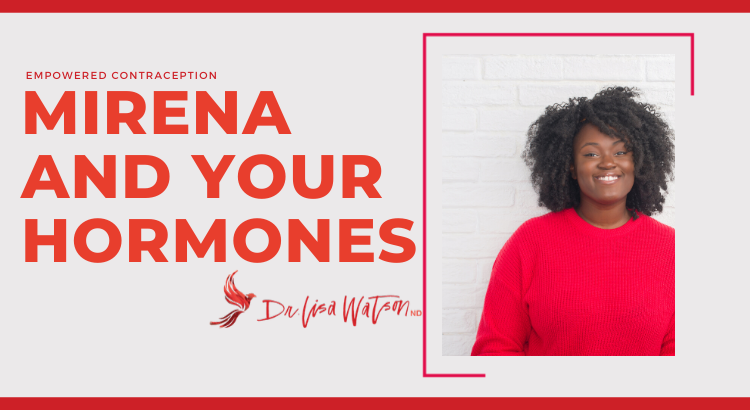
We’ve talked before about issues with birth control pills, and I’ll admit that while they are one of the oldest forms of hormonal birth control, they are probably my LEAST favourite.
In 2020 many more women are aware of the concerns with the pill, and they are unwilling to accept the common side effects – the weight gain, breast tenderness, mood changes, zero libido, migraines, and more. So what’s a woman to do?
The Hormonal IUD
For women seeking longer term pregnancy prevention, many are considering the hormonal IUD (intrauterine device) – with over 10 million users worldwide. Mirena may be the most popular, but other brands include Kyleena, Skyla and Liletta. These IUDs all contain Levonorgestral, a synthetic version of the hormone progesterone. This synthetic hormone causes a thickening of the cervical mucus, preventing sperm from passing through to the uterus, and a thinning of the lining of the uterus, preventing implantation.
Side Effects of Mirena
For some women, the side effects seem like benefits. A lighter period for many women, and no period at all for 1 in 5 women with the Mirena IUD. But for other women, there may be troublesome, or even serious side effects.
Some women will experience a nearly endless period, with spotting or flow daily for weeks, to even months on end. If that happens, the best recommendation is to have the IUD removed. Other possible side effects include:
- Spotting between periods
- Abdominal or pelvic pain
- Back pain
- Headaches and migraines
- Dizziness
- Nausea and vomiting
- Bloating
- Breast tenderness or pain
- Weight gain
- Acne (often cystic, can be severe)
- Mood changes, depression, and anxiety
- Low libido
- Puffiness in the face, hands or feet
- Itchy skin, or rashes
- Increased incidence of bacterial vaginosis
- Development of ovarian cysts
- Severe side effects are rare, but include migration of the IUD out of place, perforation of the uterus, ectopic pregnancy, and increased risk of Pelvic Inflammatory Disease (PID)
Mirena and Your Hormones
As a hormonal form of birth control, it only makes sense that the Mirena (and the others) can have an effect on your overall hormone balance. The synthetic progestin in the Mirena is not meant to fully suppress ovulation (an effect seen with oral birth control), but instead prevents pregnancy by making the uterus less hospitable (thin uterine lining, thicker cervical fluid).
This lack of suppression of ovulation means that most women still develop eggs during the time they are on the Mirena. They continue to produce the estrogen and testosterone associated with egg development, they just don’t produce the progesterone associated with normal ovulation, and instead have mostly just the synthetic progestins from the IUD.
This high estrogen, low progesterone scenario may be familiar to those of you who have read my article on Estrogen Dominance – the most common hormone imbalance you’ve never heard of.
This state of egg stimulation and development, without regular or consistent ovulation, leads many women to form ovarian cysts – a common side effect of the Mirena.
The symptoms of estrogen dominance are real – and can significantly impact a woman’s quality of life. If you are experiencing these symptoms, consider if the Mirena IUD might be contributing.
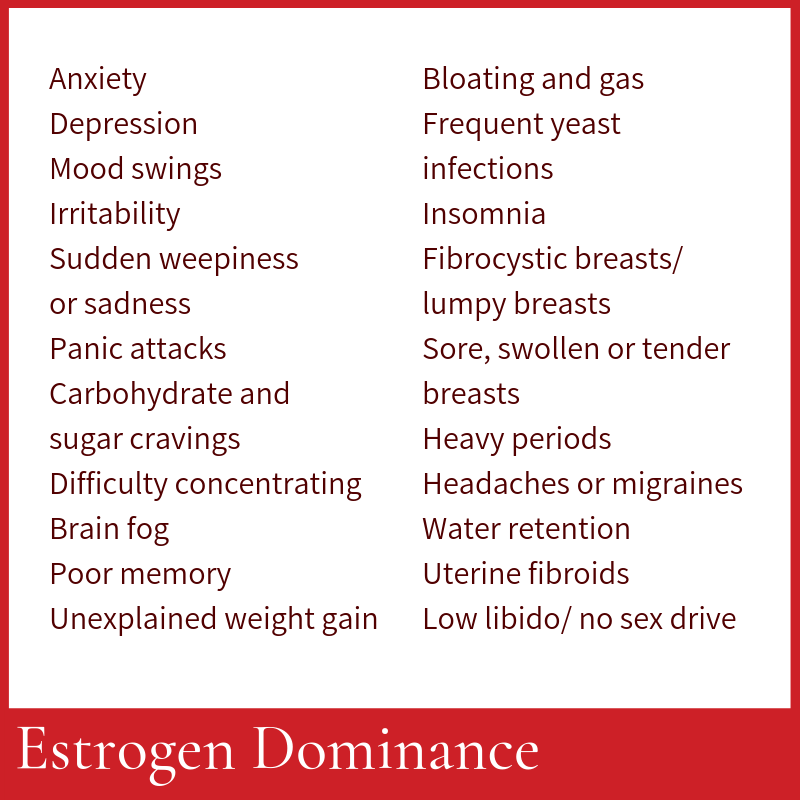
The Mirena Crash
In the past 3 years, more and more women are sharing their experiences of negative symptoms after removing the Mirena IUD. Once the IUD is removed, the body can take upwards of three months to re-establish its own hormone balance, leading many women to experience symptoms of hormonal imbalances. The symptoms of the Mirena crash include:
- Anxiety, anger, depression and other mood symptoms
- Mood swings
- Fatigue
- Muscle fatigue
- Nausea, vomiting
- Breast tenderness
- Low libido
The Mirena crash may also have symptoms very similar to estrogen dominance, as the ovaries continue to develop eggs, but may not be successfully ovulating them yet. While the makers of the Mirena IUD (Bayer) deny the existence of the so-called Mirena Crash, in 2018 they paid out-of-court settlements in excess of $12 million.
Empowered Contraception
Now, I want to say this on the record, I am not strictly opposed to the Mirena IUD. Instead, I am strongly in favour of women being given a wide diversity of information on which to make their own health care decisions. Many women are not given the full picture when they are presented with options for contraception. And how many of us ever read the insert that comes with a new medication, or see the information provided with a new IUD?
For women looking for a more empowered approach to their pregnancy prevention, I help to provide more information on a person to person basis – each of us bringing our own needs, wants, and restrictions. For some, the Mirena IUD is a good solution. For others, fertility awareness, condoms, or non-hormonal IUDs are optimal.
I want you to be aware of your choices. And make a decision that is right for you.
Want to talk? Let’s connect.
Disclaimer
The advice provided in this article is for informational purposes only. It is meant to augment and not replace consultation with a licensed health care provider. Consultation with a Naturopathic Doctor or other primary care provider is recommended for anyone suffering from a health problem.
Selected Resources:
https://www.mirena-us.com/q-and-a/
https://www.drugwatch.com/mirena/lawsuits/






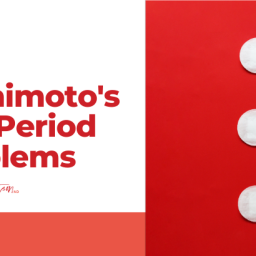






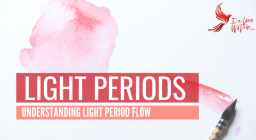

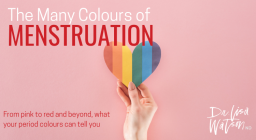
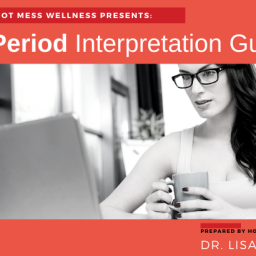
Can definitely relate to the side effects of cystic acne and BV while I used the Mirena IUD. It took me months [years maybe?] to realize the correlation! Once it was out and I course-corrected my diet, my skin issues cleared and my body’s good bacteria is in harmony.
Sometimes we just need to remove the obstacles to our health!